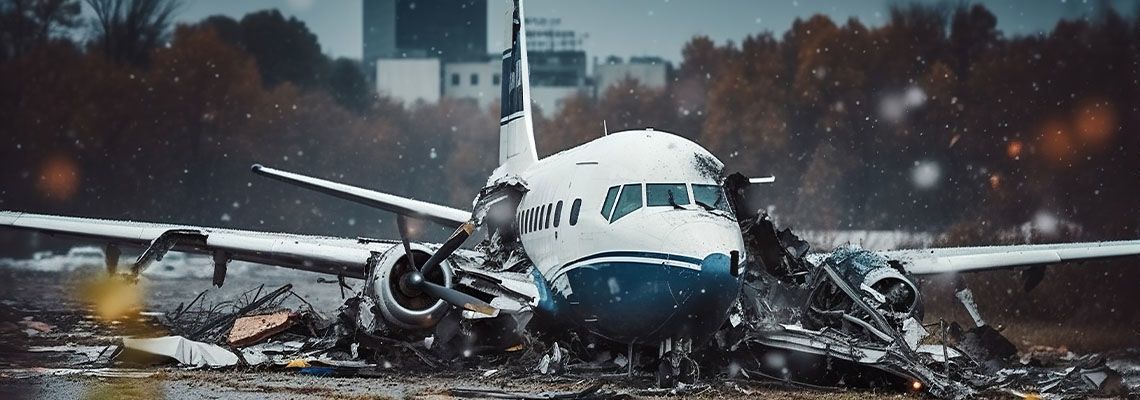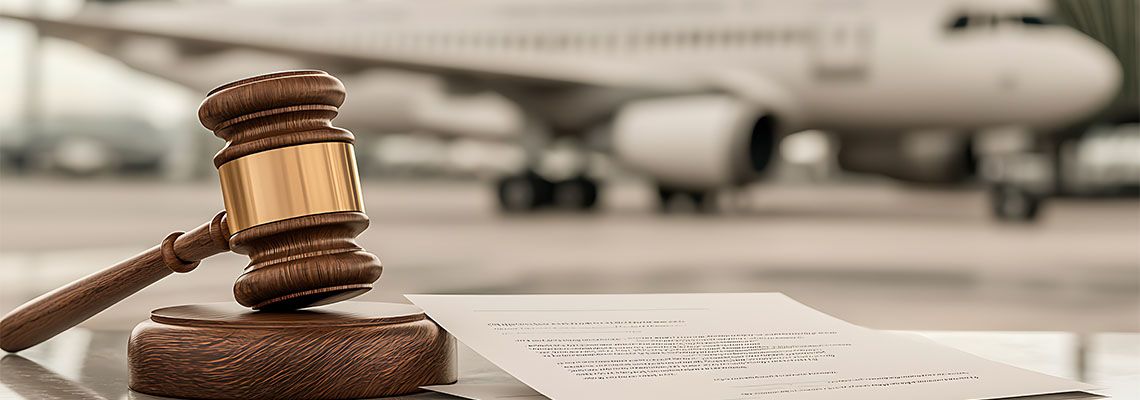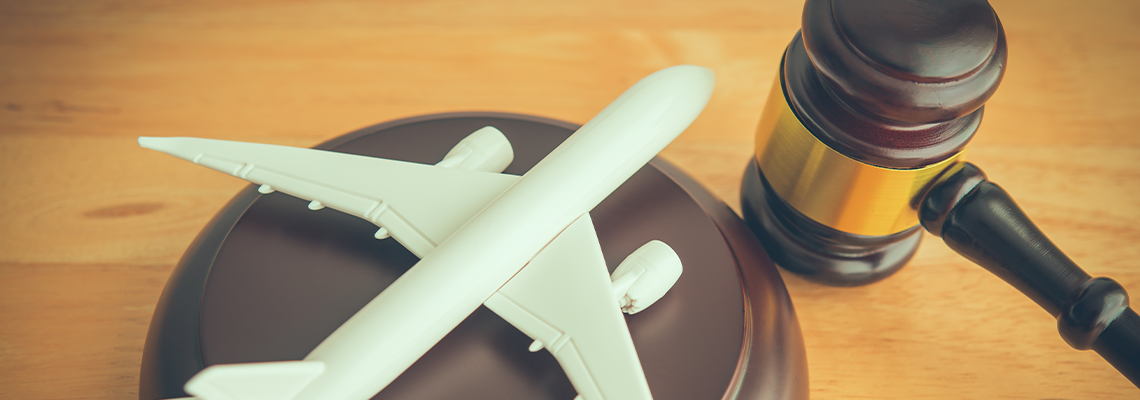Acquiring an aircraft for your business is a monumental step that can revolutionize your operations, improve efficiency, and even offer an edge in a competitive market. However, deciding whether to purchase or lease a plane is no small task.

Does the FAA Investigate Accidents?
An aircraft accident is a serious and multifaceted event that requires thorough investigation. Among the entities that delve into these incidents is the Federal Aviation Administration (FAA), a federal agency under the Department of Transportation.
The FAA was established in 1958 and serves as the national aviation authority in the United States. In addition to regulating U.S. commercial and private air travel, the FAA plays a critical role in investigating aviation accidents, alongside the National Transportation Safety Board (NTSB), to ensure that necessary safety measures are in place and adhered to to prevent future incidents.
However, it's not just the FAA on the scene. It's more of a collaborative effort. There are other key players involved in these investigations, each with their unique roles and responsibilities.
The Role of the Federal Aviation Administration (FAA)
The FAA plays a crucial role in the world of aviation, including overseeing air traffic control, setting standards for aircraft maintenance and construction, and regulating pilot training. When an accident happens, it often falls under the FAA's purview to investigate whether any regulations have been violated and address safety issues.
The FAA's involvement in these investigations is comprehensive. Examples of tasks they'll carry out include:
Scene Investigation: The FAA dispatches investigators to the accident scene as soon as possible. They examine the wreckage, document the scene, and collect evidence that can inform the investigation.
Data Analysis: The FAA scrutinizes flight data records, cockpit voice records, weather information, and maintenance logs. This analysis helps them understand the circumstances leading up to the accident.
Interviews: FAA investigators conduct interviews with witnesses, crew members, air traffic controllers, and maintenance personnel. These firsthand accounts can provide invaluable insights into the accident.
Regulatory Compliance Check: The FAA reviews the pilot's qualifications, training records, and medical certifications. They also assess whether the aircraft was maintained according to FAA regulations and whether air traffic control followed appropriate procedures.
Safety Recommendations: Based on their findings, the FAA may recommend changes to policies, procedures, or regulations to improve aviation safety and prevent similar accidents in the future.
Legal Action: If the FAA determines that its regulations have been violated, it can pursue legal action against the individuals or entities involved.
Their findings can influence future aviation safety protocols and help prevent similar accidents from occurring. However, the FAA doesn't work alone in these investigations.
The National Transportation Safety Board (NTSB)
Another key player in aviation accident investigations is the National Transportation Safety Board (NTSB). This independent government agency investigates every civil aviation accident in the United States, and in some cases, even international airline accidents.
The NTSB, like the FAA, sends technical experts to accident scenes to conduct in-depth investigations into the probable cause of accidents.
While the FAA focuses on regulatory compliance and safety enhancements, the NTSB's goal is to understand the root cause of an accident. They provide impartial assessments of what went wrong, issue safety recommendations, and assist any victims throughout the process.
The NTSB's support extends beyond the investigation itself. They are committed to ensuring that the victims' families are informed about the investigation process and are provided with assistance in the aftermath of the accident. This includes explaining the investigation procedures, keeping them updated with respect to the progress and findings of the investigation, and providing resources and support to help them manage the emotional and logistical challenges that might arise.
Other Parties Involved in Investigations
Depending on the context and events surrounding the aviation accident, there may be additional parties involved in the investigation. For instance:
Local fire, medical, police, or airline workers who provide assistance and witness the events following the incident may also play a part in the investigation.
Manufacturers of the engines, airframes and relevant components believed to be involved in the accident.
If a terrorist event or national security breach is suspected, the Federal Bureau of Investigation (FBI) may participate.
The Importance of Professional Representation After an Accident
While these federal agencies work to uncover the causes of an accident, it's equally important for businesses affected by aviation accidents to have someone advocating for their interests. Bill Harger, a seasoned attorney based in Houston, Texas, provides this crucial representation.
Aviation professionals and aircraft owners face distinctive and substantial liabilities stemming from the operational environment, regulatory challenges, and a litigious industry. Bill's extensive and broad experience in aviation law makes him uniquely positioned to effectively defend against wrongful death and injury lawsuits. He can help you understand what to expect during an aircraft accident investigation and protect your rights throughout the process.
Address Your Questions With an Attorney
While the FAA does investigate aviation accidents, they are not the only ones involved in the process. Navigating these investigations and their aftermath can be a complex task, which is where experienced legal representation comes into play. Whether you have questions about anything to do with the aircraft accident investigation process, or you need someone to advocate for your interests, consider reaching out to Bill Harger.
His firm, William G. Harger & Associates, PLLC, is based near Houston, Texas, but his services extend to aviation industry professionals throughout the country.
RECENT POSTS
Corporate aircraft are valuable assets that require meticulous care to operate safely, effectively, and in compliance with regulations. For aircraft owners, operators, and aviation businesses, it's not just about ensuring the aircraft remains airworthy but also about protecting the significant investments tied to these machines.
The aviation industry is a dynamic and complex sector, where businesses often collaborate to share resources, reduce costs, and expand their reach. One of the most effective ways to achieve these goals is through a joint venture. Whether it’s a partnership between airlines to streamline operations or a collaboration between manufacturers to develop cutting-edge aircraft technology, joint ventures play a pivotal role in shaping the industry.



